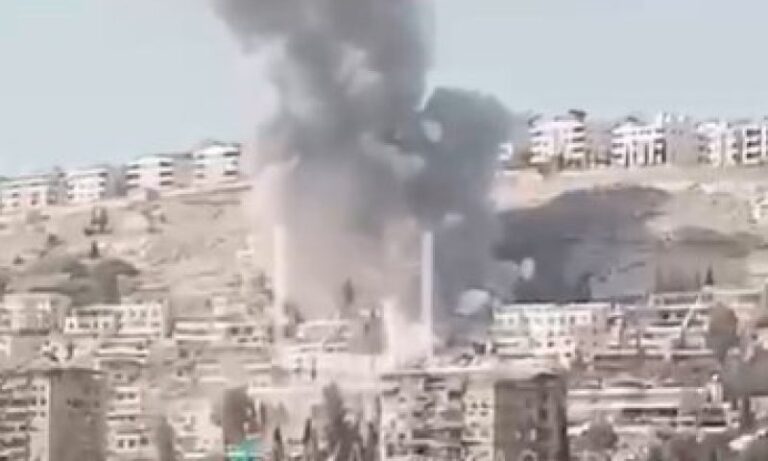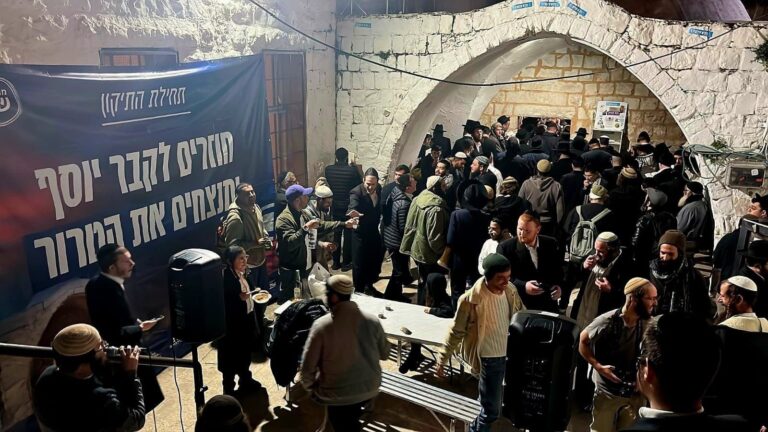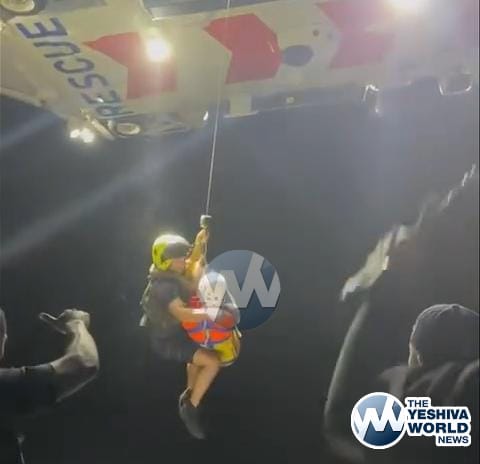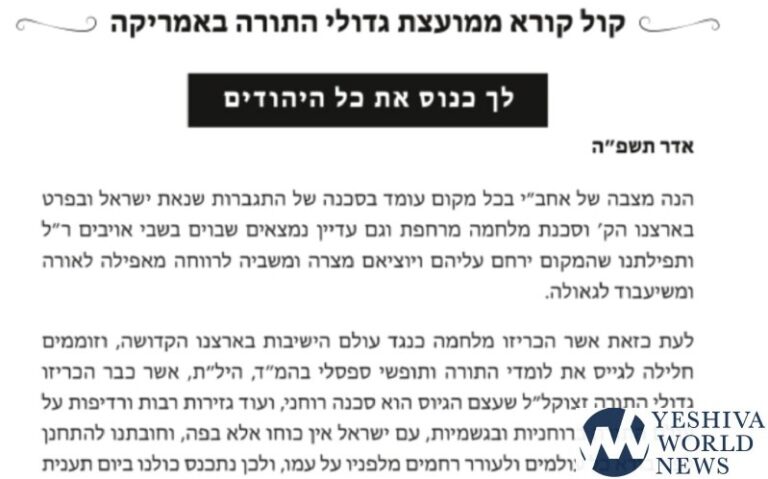By Rabbi Yair Hoffman
Imagine working hard to build your dream business – an arcade filled with the games you lov, that offers hourly or daily rates instead of quarters – only to have it brutally ransacked during Thanksgiving weekend. This is exactly what happened to Will Luna, the owner of Extraordinaire Arcade in San Bernardino, California.
In a shocking turn of events, thieves executed a clever but devastating plan. While Luna was closing up for the holiday, unbeknownst to him, a woman had been hiding in the building’s attic. Once everyone left, she crept down and unlocked the door, disabled the security system, let in some 18 fellow thieves and unleashed a wave of destruction that would last two devastating days.
The thieves took many valuable items, including: Gaming monitors Video game consoles (PlayStation 5 and Nintendo Switch), Security cameras, A special X-Men arcade game, Snacks, Keys to all the game machines, and a machine for reading debit cards
When Mr. Luna reported the theft to the police, they started investigating, but didn’t make much progress. Then, someone told Luna that they had seen his stolen items in a nearby homeless camp. Even though Luna went to the police, they told him they couldn’t search the homeless camps because of laws protecting homeless people’s rights.
So Will Luna decided to look for his things himself. He went through the homeless camps, searching tents, and found some of his stolen items like gaming accessories and snacks. The police told him that while they couldn’t search the tents themselves, Luna was allowed to look for his own property.
This isn’t the first time businesses in his area have had trouble. Other shops nearby, including a salon and a pizza restaurant, have also been broken into. Luna had to spend $1,300 at Best Buy to replace some of his stolen equipment, and he still hasn’t found his most valuable items, including the X-Men arcade game.
THE HALACHA
Of course, our interest in this is halachic. What would halacha say about the owner retrieving his things by himself? What may he do and what may he not do?
The topic is called Adam Oseh Din L’Atzmo.and it is discussed in meseches Bava Kamma (46b), Rabbi Yehuda says, “A person is not permitted to take the law into their own hands, even in a case where there would be a loss.” The Gemara latefr explains that if a person feels they can judge for themselves, they should still not do so except in a case where they might suffer an irretrievable loss.
When one does act on their own behalf in such situations, they must still be able to prove in court that they were within their rights. If someone sees their items being damaged and knows they could lose evidence or a chance to prove their case, they can take action to protect themselves until they can bring the matter before a court.
Permission for self-judgment applies only in places where bringing the matter to court would result in a loss. For example, the Gemara in Sanhedrin (5b) discusses the case of clear liability, stating that just as the court would rule in such a matter, so too may an individual act in accordance with what would be obviously ruled.
MINIMUM DAMAGE
The Rishonim write that even when self-help is permitted, it must be done with minimal damage and only to the extent necessary to prevent loss. Could Mr. Luna have accomplished his goals without ripping the tent? If so, then it would have been prohibited. And even if not, it would still be questionable.
CAVEAT: WHERE WAITING WOULD CAUSE A LOSS
According to the Gemara, in cases where someone has unlawfully seized property, the original owner’s right to recover it directly is strictly limited to situations where waiting for court intervention would result in demonstrable loss.
THE EVIDENCE MUST BE READY
The Rashba explains that one must have clear evidence of ownership before taking any action. The entry must occur during normal daytime hours, and any form of unnecessary confrontation must be strictly avoided. The recovering party may take only items they can definitively prove belong to them, and everything must be documented with reliable witnesses present.
THE NEED FOR PUBLIC ORDER
The Ramban on the Gemorah explains that while preventing loss is important, it must be balanced against maintaining public order. The Ramban emphasizes that even when acting within one’s rights, one must consider the broader implications for communal peace.
DOCUMENTING ACTIONS
The Rosh writes that whenever someone takes action to recover property without court intervention, they must ensure proper documentation of their actions. This includes having witnesses present who can testify not only to what was taken, but also to the manner in which it was taken. According to the Rosh, this documentation requirement applies even in cases of clear ownership.
IF THERE IS TIME
The Mordechai adds an important qualification regarding timing. He explains that even in cases where self-help would normally be permitted, if there is time to convene a court without risking loss, one must pursue the legal route. This principle, he notes, applies even in cases where one’s ownership rights are clear and undisputed.
MINIMUL CONFRONTATION
According to the Nimukei Yosef, when discussing entry onto another’s property, several key principles emerge. He explains that while a person may enter another’s domain to prevent loss of their property, they must do so in a way that minimizes confrontation. The Nimukei Yosef emphasizes that this permission is not a blanket authorization but rather a carefully circumscribed exception to normal property rights.
PEACEFUL ENTRY AND DAYLIGHT HOURS
The Ran elaborates on this concept, providing specific guidelines for such entry. He states that one must first attempt to gain peaceful access and may only resort to forceful entry when absolutely necessary to prevent loss. Furthermore, the Ran explains that any such entry must be conducted during normal daylight hours and with witnesses present.
LOCAL CUSTOM
The Meiri, who discusses the importance of community standards in these matters. He explains that local custom plays a significant role in determining what actions are considered reasonable and appropriate. The Meiri notes that different communities may have varying standards for what constitutes acceptable self-help measures.
WITNESSES MUST BE PRESENT
Regarding the specific requirements for witnesses, the Or Zarua teaches that they must be present throughout the entire process of property recovery. According to his interpretation, witnesses serve multiple purposes: they ensure that only rightful property is taken, they can testify to the manner of recovery, and they help prevent false claims on both sides. The Or Zarua notes that without proper witnesses, even justified self-help actions may be viewed as improper taking of property.
There is a ruling from the Rema regarding cases where damage has already occurred. The Rema explains that once property has been damaged or taken, the urgency that might justify self-help often diminishes. In such cases, he teaches that court proceedings become the preferred method of seeking restitution, unless there is clear evidence that further damage or loss is imminent.
PERISHABLE ITEMS
The Nesivos HaMishpat then addresses situations involving perishable goods or items that may lose their value quickly. He explains that the potential for rapid depreciation or spoilage may create special circumstances where more immediate action is justified. However, he emphasizes that even in such cases, the action taken must be proportional and documented.
CONCLUSION
Our leading Roshei Yeshiva have always emphasized the need to view the world through “Torah glasses” so to speak. The incident of the arcade owner’s stolen items is a perfect opportunity to explore this fascinating sugya in the Gemorah, Rishonim and Achronim. Of course, our sympathies are with him and we hope that he recoups his losses soon.
The author can be reached at [email protected]











